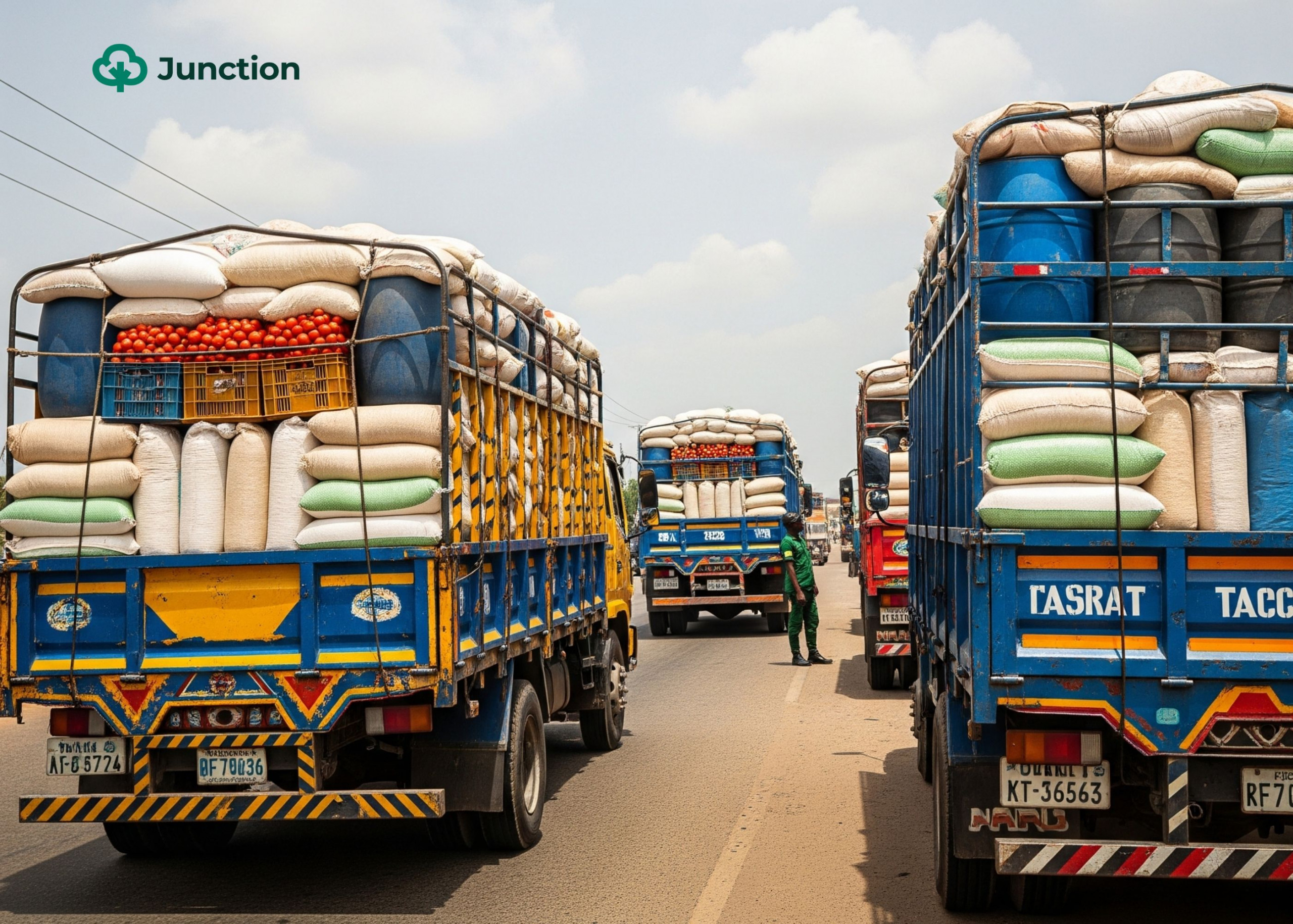News in Brief:
– Despite a slight dip in petrol prices, exorbitant freight costs continue to drive up food prices in Nigeria due to dilapidated roads and high operational expenses.
– This results in severe cost-push inflation, making essential food items unaffordable for many households and overshadowing any minor relief from reduced fuel costs.
The recent, albeit marginal, decrease in fuel prices in Nigeria has brought little respite to the nation’s struggling households as prices of essential food items remain high.
This is due to the cost of transportation remaining stubbornly exorbitant, despite a fall from peak highs, creating a significant bottleneck for the movement of goods, particularly food commodities, across the vast country.
This persistent challenge is directly translating into escalating food prices, pushing essential staples further out of reach for millions of Nigerians.
The Lingering Impact of Fuel Subsidy Removal
The removal of fuel subsidies in 2023 was a seismic shift, sending petrol prices rocketing and unleashing an inflationary spiral.
While the pump price has settled slightly, now ranging from approximately ₦800 to ₦900 per litre, the underlying issues that inflate transportation costs, especially for freight, are deeply entrenched.
Essentially, the emphasis lies heavily on interstate haulage, which forms the backbone of Nigeria’s food supply chain, connecting northern farmlands to consumption hubs in the south.
“The little drop in fuel price? It’s hardly noticeable when you consider everything else we face,” lamented Mr. Garba Shehu, a long-haul truck driver specialising in transporting produce from Kano to Lagos.
Mr. Shehu charges between ₦800,000 and a little over ₦1 million to transport food items between the North and South of Nigeria, which is slightly lower than it was previously, as reported by this publication.
Beyond Fuel: The Myriad Challenges for Freight
Meanwhile, the challenges for interstate freight go far beyond mere fuel costs. Nigeria’s dilapidated road infrastructure is a primary culprit. Pothole-ridden highways lead to frequent vehicle breakdowns, increased maintenance costs, and longer travel times, all of which inflate transport fares.
“A journey that should take 10 hours can easily stretch to 18 or even 24 hours because of bad roads,” explained Mr. Cyril Obi, a trader specialising in yam transport from Benue State. “Every extra hour on the road means more fuel consumed, more wear and tear on the vehicle, and more risk of spoilage for perishable goods, not to mention the attendant security risks.”
“The cost of maintaining these heavy-duty vehicles, from tyres to engine parts, has skyrocketed,” Obi adds. “And then there are the numerous levies at every state border and even within states. It’s like we are paying tolls for every kilometre we cover.”
Traders’ frustrations indicate that fuel is just one of many escalating operational expenses for transporters of goods in Nigeria.
Direct Impact on Food Prices in Nigeria
Consequently, these compounded transportation costs directly translate to high food prices.
Agricultural produce, which largely originates from the Northern and Middle Belt regions, must traverse hundreds of kilometres to reach consumers in the more densely populated Southern states.
“A full-grown cow that we used to buy for ₦250,000 to ₦350,000 is now selling for over ₦1 million, sometimes ₦2 million or even ₦3 million, depending on the size and location,” exclaimed Alhaji Hamza, a major cattle dealer at the Kara Market in Lagos.
“The cost of bringing one trailer-load of cows from states like Adamawa or Borno has jumped dramatically. You’re looking at hundreds of thousands of naira just for transportation per truck, not to mention security details and other informal charges. We have no choice but to pass that cost on to the consumers,” he expressed.
Consequences for Consumers and the Economy
The consequences for consumers are dire. A recent survey by SBM Intelligence highlighted that 85.7% of transport operators have been compelled to raise prices to keep their businesses afloat, directly impacting the cost of living. Many families are struggling to afford three square meals a day.
Economists highlight the phenomenon of cost-push inflation, where increased production and distribution costs (in this case, transportation) are passed on to consumers, leading to higher prices. The persistent high freight costs create a pervasive inflationary environment that far outweighs any minor relief from reduced petrol prices.



